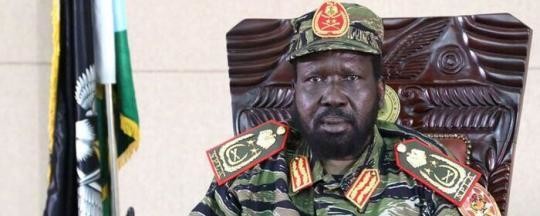South Sudan’s Minister of Health has admitted that a delay in formally declaring a cholera outbreak was caused by the “busy schedule” of General Salva Kiir, whom he said needed to be informed of the situation before health authorities could declare the outbreak, which killed at least 19 people so far.
The government already has a cholera response plan but full activation of the plan had to wait for the president. Minister of Health Riek Gai said that health authorities have been trying for several days to meet President Kiir without success, until today.
Gai explained to journalists in Juba today that laboratory tests “confirmed beyond doubt that there is an outbreak of cholera in Juba and as required by World Health protocol, that even if there is a single case confirmed it must be made public the country has an obligation to declare it, but prior to that public declaration you need to put the highest in picture, the president.”
“So for the last few days we have been making efforts to meet His Excellency the President and this morning despite his busy schedule we were able to meet him, the meeting was attended by the Undersecretary Dr.Mmakur, Dr. Manzil, the Country representative of WHO, and Dr John Rumunu, and Dr. Moses of the WHO,” he said.
The minister continued: “So we informed the president that there is an outbreak of cholera that started since the 1st of June and has now been confirmed through our public health laboratory, and up to today we have 171 cases of cholera and 18 cases of deaths due to cholera in different parts of juba, 9 of these cases occurred in Juba Teaching Hospital, 9 of them occurred at home.”
The World Health Organization Representative Tarande Manzila disclosed that cholera testing equipment is available to confirm samples within 24 hours. “In the past years we had a delay in confirming suspected cases because all the laboratory specimens needed to be sent outside the country and we waited for weeks to have confirmation… [but now] we are able to confirm all the suspected cases within 24 hours.”
In spite of this, the Ministry of Health decided to send samples to laboratories outside of South Sudan for secondary confirmation.
Gai refused to respond to questions about the delay in the confirmation of samples. “We are not here today to investigate the past we are here today to disseminate what is supposed to be done. You are asking why information was not disseminated or informed the public, that thing I have no time for it,” he told journalists.
What do you think about this story? Leave a comment about it on our Facebook page.




